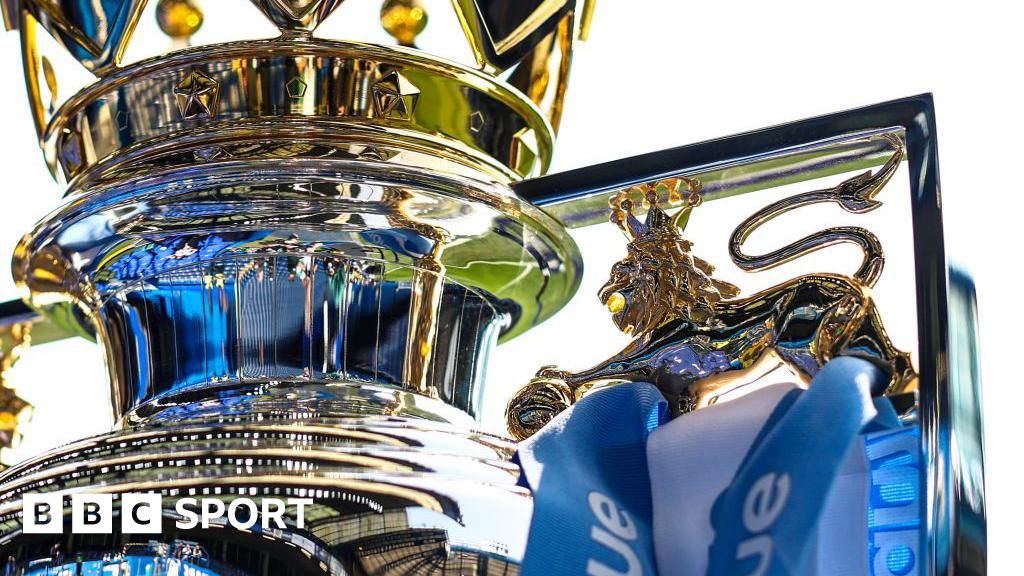In June of this year, a Portuguese computer hacker named Rui Pinto in the witness protection program is said to have told a conference that he was in possession of “millions of documents” that could be relevant to the City’s case.
Pinto was well known to football authorities. The 34-year-old was the man behind the website Football Leaks, which published confidential transfer and contract information on football players.
Although he always claimed to be a whistleblower, he was given a four-year suspended sentence by a Lisbon court last year after finding him guilty of attempted extortion, illegal access to data and breach of correspondence. But his threat to release more information – confirmed by his lawyer – was a timely reminder of the ongoing role of one of the key figures in this remarkable story.
Back in 2018, German magazine Der Spiegel claimed that City had manipulated contracts to circumvent UEFA rules, saying the source was a whistleblower named “John” – the pseudonym under which Pinto created Football Leaks.
Der Spiegel had published leaked documents, including alleged emails exchanged between City’s top managers (some of whom still work for the City Football Group) over several seasons following the takeover of the Abu Dhabi club in 2008.
They claimed that these showed that the club had inflated sponsorship income from state-owned airline Etihad and state-controlled telecommunications company Etisalat. The club had disguised direct investments from its holding company (Mansour’s Abu Dhabi United Group or ADUG) as sponsorship income and channelled the funds through the companies’ accounts.
This was claimed to be a means of complying with the Financial Fair Play (FFP) rules introduced by UEFA in 2011 and the Profit and Sustainability Rules (PSR) introduced by the Premier League in 2012, which limit the losses clubs are allowed to incur.
This was followed by further allegations of financial misrepresentation, focusing on documents that allegedly showed secret, off-the-books payments to then-coach Roberto Mancini in the form of consultant fees from a club in Abu Dhabi. In addition, more money was transferred to the players than officially flowed through the accounts, so that the recorded expenses were lower than they actually were.
City – which has always stressed that ADUG is a private fund and not an arm of the state – refused to comment on Der Spiegel’s revelations, saying the leaked emails were obtained illegally and were an “attempt to damage the club’s reputation”.
City and the companies involved strongly denied breaching financial rules, but that did not stop UEFA and the Premier League from launching investigations.
City had already been fined millions of euros by UEFA in 2014 as part of a settlement after it was found to have breached FFP rules, which are designed to make football more sustainable but critics say protect historically the biggest clubs by restricting investment from rivals, particularly those with Middle Eastern backers.
Then, in early 2020, the club was banned from European club competitions for two years after it was found to have committed “serious breaches” of the governing body’s regulations. An independent panel of UEFA’s financial control body concluded that City had “over-declared its sponsorship income in its accounts submitted to UEFA between 2012 and 2016”, adding that the club had “failed to cooperate with the investigation”.
City criticised the “biased” decision following a “flawed and constantly leaked process”, referred to “extensive, irrefutable evidence to support its position” and appealed.
A few months later, they were successful: the Court of Arbitration for Sport (CAS) lifted the ban on the grounds that it had “found no conclusive evidence that the clubs had disguised their owner’s money as sponsorship”. In addition, most of the alleged violations of the rules had either not been proven or were “barred” because they fell outside the statutory five-year period for criminal prosecution.
Cas revealed that Sheikh Mansour had written a letter to the court insisting that he “did not authorise ADUG to make any payments to Etihad, Etisalat or any of their subsidiaries in connection with their sponsorship of MCFC.”
However, City was also found to have committed a “serious breach” by failing to cooperate with UEFA’s investigation. The original fine of £25 million was reduced to £8 million.
For more than two years, the saga seemed to go quiet, but behind the scenes, the Premier League investigation continued. In July 2021, there was a dramatic insight when a High Court judge revealed that the Premier League had in effect accused City of delaying tactics by refusing to hand over documents and instead demanding that the club do so.
And then, in early 2023, came the most sensational twist in the saga to date: Just as City was on its way to its third of four consecutive titles and its first Champions League triumph, the club was confronted with a catalogue of allegations relating to every single year since Sheikh Mansour bought the club.

